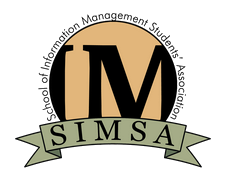IWB 2014 Schedule
Location: The McInnes Room in the Student Union Building at Dalhousie University
8:00 a.m. - 9:00 a.m.: Registration open
9:00 a.m. - 9:05 a.m.: Welcome from IWB Committee Co-Chairs
9:05 a.m. - 9:15 a.m.: Opening remarks
Carolyn Watters
9:15 a.m. - 10:15 a.m.: Opening Keynote
Ron Deibert
"The Internet after Snowden"
A recent stream of documents leaked by former NSA contractor Edward
Snowden has shed light on an otherwise highly secretive world of cyber
surveillance. Among the revelations, perhaps the most important for the
future of global cyberspace are those concerning the way the U.S.
government compelled the secret cooperation of American
telecommunications, Internet, and social media companies with signals
intelligence programs.
For American citizens, the NSA story has touched off soul-searching
discussions about the legality of mass surveillance programs, whether
they violate the Fourth and Fifth Amendments of the U.S. Constitution,
and whether proper oversight and accountability exist to protect
American citizens' rights. But for the rest of the world, they lay bare
an enormous “homefield advantage” enjoyed by the United States — a
function of the fact that AT&T, Verizon, Google, Facebook, Twitter,
Yahoo!, and many other brand name giants are headquartered in the United
States. What will the reactions to those revelations be?
Drawing from the first hand accounts of the University of Toronto's
Citizen Lab (Munk School of Global Affairs), Deibert will provide an
overview of some disturbing reactions and threatening geopolitical
developments to the Snowden revelations as states, criminals, and shady
companies struggle for advantage in the post-Snowden world.
10:15 a.m. - 10:30 a.m.: Coffee break
10:30 a.m. - 11:30 a.m.: Breakout sessions
Wayne MacKay:
"Is Privacy Dead in the Age of Social Media and Technology?"
Mike Smit:
"Privacy, New Technology, and the Ongoing Conflict"
11:30 a.m. - 12:45 p.m.: Lunch and poster display
12:45 p.m. - 2:00 p.m.: Panel discussion
"Multi-Disciplinary Issues in Privacy"
Creighton Barrett, Charmaine Borg, David Fraser, Alison Shea
2:00 p.m. - 2:15 p.m.: Coffee break
2:15 p.m. - 3:15 p.m.: Student speakers
Marc Harper:
"How 1984 is happening in the 21st century: North Korea's Kim Dynasty is watching."
Hilary Lynd:
"Eyes in The Shadows: Investigating Blanket Surveillance and The Case for Privacy"
Lee Wilson:
"Much Ado About Data: Privacy and Information Control in the Age of Social Media"
3:15 p.m. - 4:15 p.m.: Closing keynote
Jacquelyn Burkell
"I'm Worried About My Mom, Not the Government: Managing Personal Privacy in the Age of the Internet"
Edward Snowden's revelations of governmental surveillance have raised
concern and even the ire of ordinary Canadians, and some might suspect
the result would be a change in online behaviour to reveal less of
ourselves to the prying of surveillance techniques. If history is any
guide, however, the threat of surveillance will have no impact on
behaviour, and people will continue to disclose personal information
with no increase in self-regulation.
Dr. Burkell examines online privacy from a personal perspective,
discussing the factors that influence privacy-related decisions. She
explores the 'privacy paradox', exploring why we compromise our own
privacy while at the same time declaring privacy as an important value.
She identifies characteristics of the online environment that make it
difficult for participants to protect their own privacy interests. She
explores the social norms regarding online privacy, and examines
individual differences in privacy-related practices. We can't develop
strong privacy-protecting policy until and unless we understand the
behaviour and attitudes of the citizens those policies are meant to
protect: Dr. Burkell's research supports this understanding.





